Westinghouse workers considering IBEW union
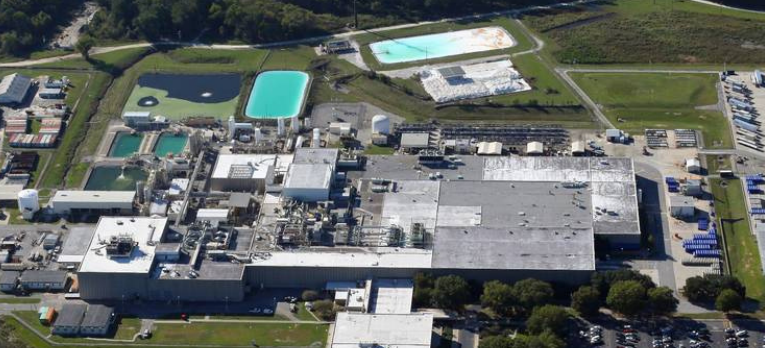
Hundreds of employees at the Westinghouse nuclear fuel fabrication facility in South Carolina are trying to form a union and join the International Brotherhood of Electrical Workers.
Published since 1959, Nuclear News is recognized worldwide as the flagship trade publication for the nuclear community. News reports cover plant operations, maintenance and security; policy and legislation; international developments; waste management and fuel; and business and contract award news.

A message from General Atomics
Advanced Nuclear Fuel Cladding: Innovative Materials Enhance Fleet Safety and Performance

Hundreds of employees at the Westinghouse nuclear fuel fabrication facility in South Carolina are trying to form a union and join the International Brotherhood of Electrical Workers.

Idaho National Laboratory announced on January 31 that it is expanding its research partnership with the Colorado School of Mines (Mines). Representatives from the two institutions signed a memorandum of understanding in October that outlines a framework for collaboration on research into energy storage, high-temperature fuel cells, geothermal energy systems, the nuclear fuel cycle and reactor engineering, environmental science, and next-generation mining science and engineering.

Holtec International has agreed to pay $5 million in penalties to the state of New Jersey to avoid criminal prosecution over $1 million in tax credits that the company, along with Singh Real Estate Enterprises (SRE), sought in 2018. Holtec has also agreed to retain an independent reviewer approved by New Jersey to monitor future applications for state benefits.
The Czech government is looking to accelerate the pace at which it is adding nuclear energy to its grid. Officials announced yesterday that it plans to build up to four nuclear reactors—instead of one—as the country tries to become more energy independent and shift away from fossil fuels.
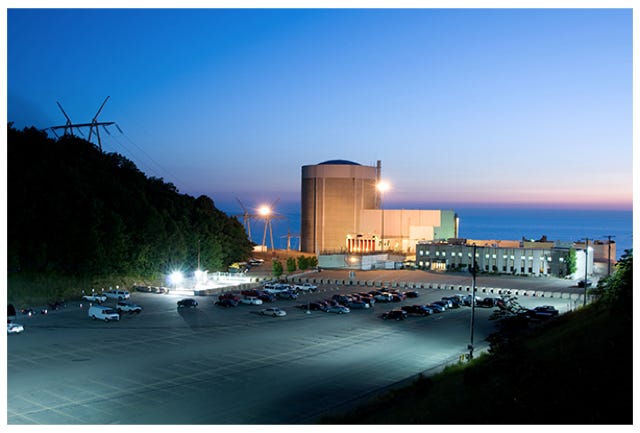
The Palisades nuclear power plant in Covert, Mich., may become the first in the United States to be restarted after permanent shut down—with help from a $1.5 billion loan being championed by the Biden administration.

Zeno Power announced on January 26 that it will get the strontium-90 that it needs to fuel full-scale radioisotope power systems (RPSs) for national security and space exploration missions from the Department of Energy’s Oak Ridge Office of Environmental Management (OREM). Under a public-private partnership, a large legacy RPS known as the BUP-500 that had languished, unused, in storage at Oak Ridge National Laboratory has been transported to an unnamed commercial radiological facility in Pennsylvania—Zeno Power’s subcontractor—where the Sr-90 it contains will be repurposed as heat sources for Zeno Power devices.
The United Kingdom’s Future Nuclear Enabling Fund (FNEF) awarded £33.6 million (about U.S.$42.8 million) to GE Hitachi Nuclear Energy last week.
The move comes as part of the FNEF’s support for growing the Britain’s generation of 24 GW of nuclear by 2050. The country currently produces around 9,100 megawatts per year.

Ontario Power Generation’s Pickering nuclear power plant may see decades of new service beyond its original lifespan, which included plans to shut reactors down this year.
Ontario energy minister Todd Smith announced today government support for refurbishing four nuclear reactors collectively known as Pickering B, located on the north shore of Lake Ontario, east of Toronto. This move is part of a larger energy strategy, as forecasts show the demand for electricity is expected to double in the next 25 years.

More people in low- and middle-income countries who have head and neck cancer may be able to access lifesaving radiotherapy after research supported by the International Atomic Energy Agency has shown that fewer—but higher—doses of radiation treatment resulted in clinical outcomes similar to standard radiotherapy treatments. Reducing overall treatment times for this type of cancer through a treatment regimen called hypofractionation could help countries navigate resource constraints and shorten waitlists, enabling more patients to receive treatment while also reducing the cost and duration of care. The IAEA announced the findings in a news article published January 22.

Ukraine plans to start construction on four new nuclear plants this summer or fall, the country’s energy minister said in televised remarks today.
The quicker timeline aims to compensate Ukraine for lost energy capacity as its war with Russia continues. Ukraine’s government, however, still needs to sign off on the plans.
“We need vessels,” said energy minister German Galushchenko.
The Nuclear Regulatory Commission has opened registration for its 36th annual Regulatory Information Conference, to be held March 12–14 online and in person in North Bethesda, Md. The NRC is expecting several thousand attendees from the United States and around the world for the three-day event.
Registration is required to attend. The full conference program and registration information is available on the NRC’s RIC website and on NRC social media platforms under the tag #NRCRIC2024.
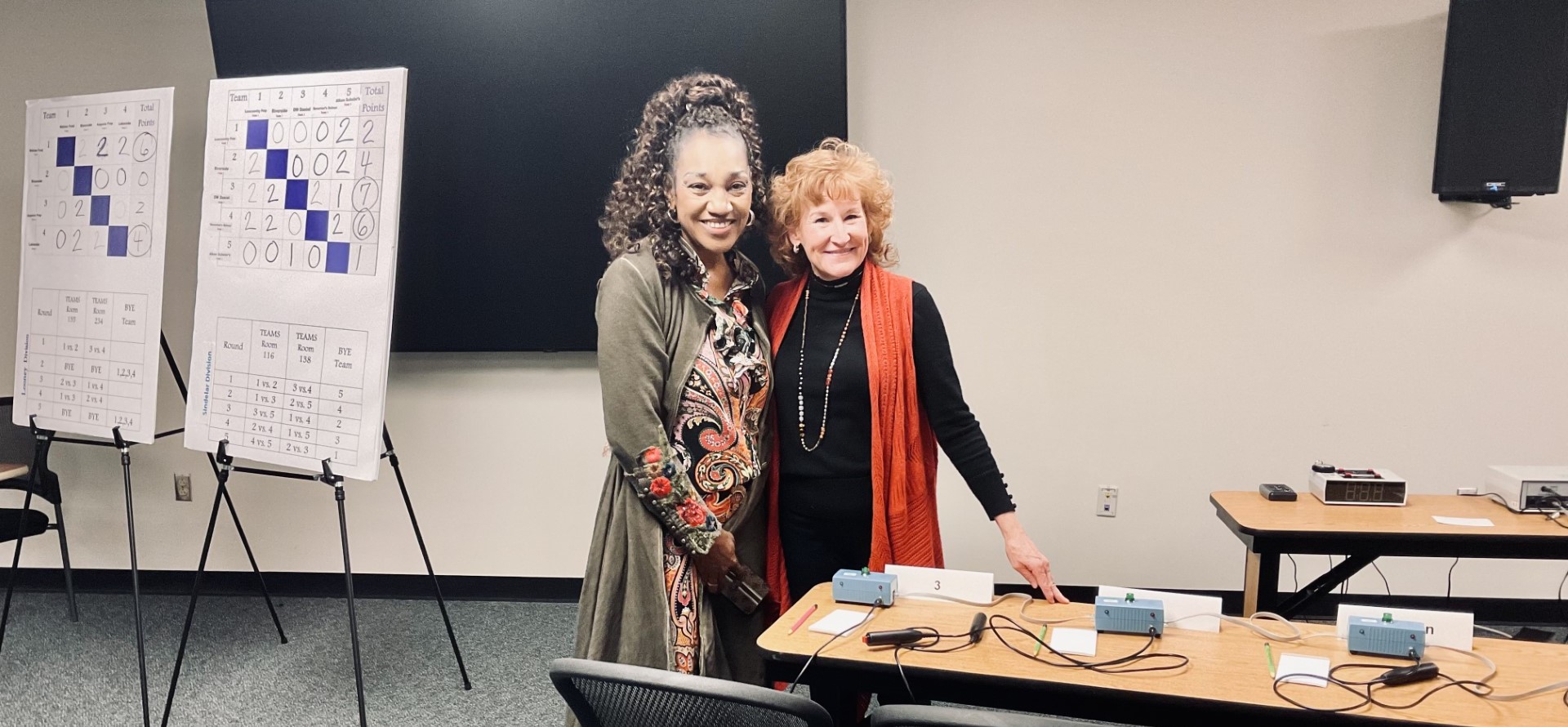
A program manager from the Waste Isolation Pilot Plant recently visited the Savannah River Site to benchmark an education outreach program’s successful science, technology, engineering, and math (STEM) outreach initiatives, which have been in place with local schools since 2008.

The OECD Nuclear Energy Agency is hosting a workshop on the economics of small modular reactors in Ottawa, Canada, on February 27, 2024.
The workshop will be an in-person event, with no hybrid or virtual attendance option. There is no cost for the workshop, but attendees from relevant organizations will be prioritized due to room capacity.
Registration is required.
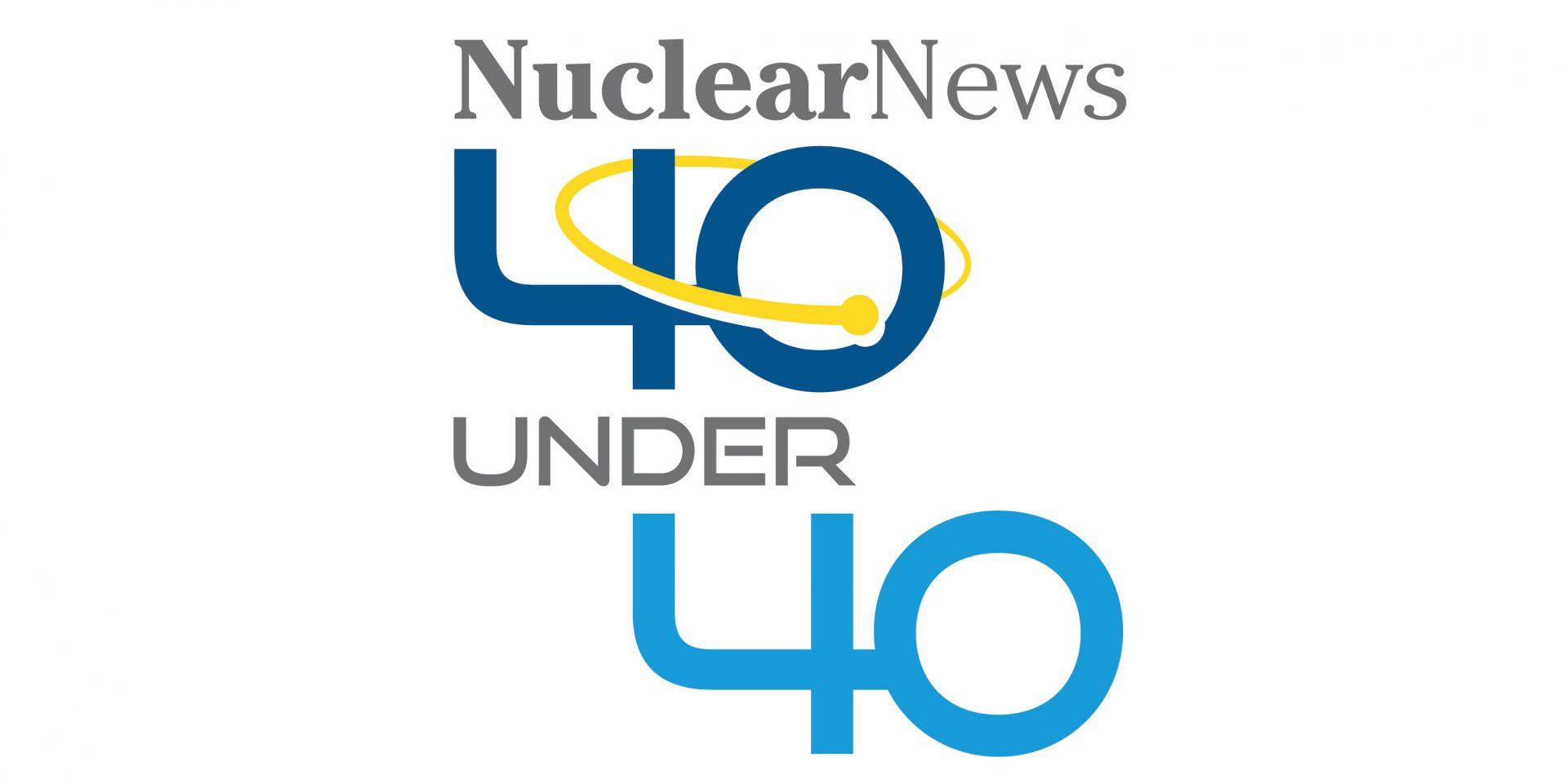
This year, Nuclear News will recognize the rising stars of the nuclear community when it publishes its first “40 Under 40” list in the December issue. Nominations should be submitted no later than April 1, 2024.
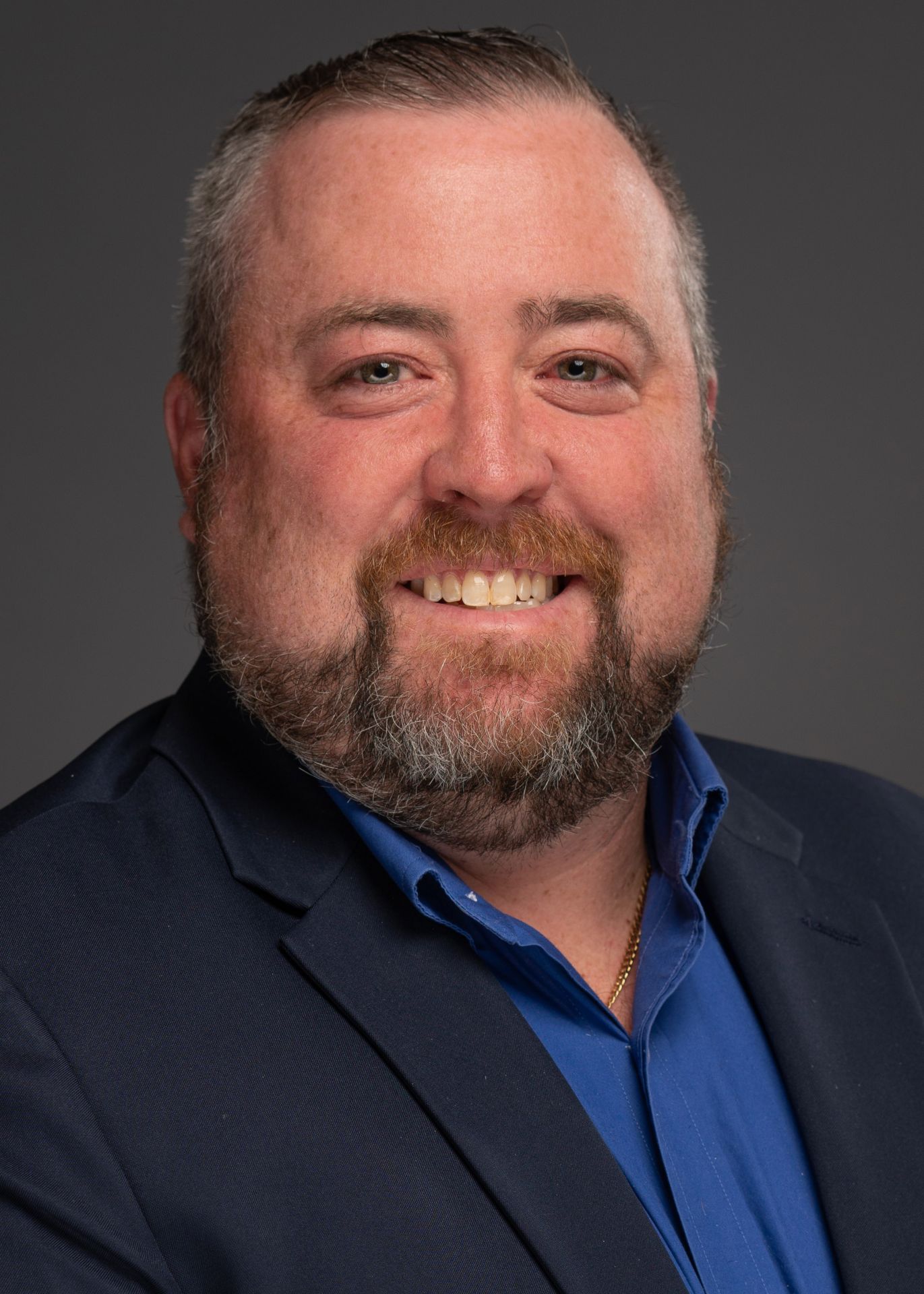
Patrick O'Brien
The adage “a rising tide raises all boats” keeps coming to my mind whenever I think about the work ahead for small modular reactor and advanced reactor development companies. The groundwork being laid by the entire industry is key to moving the whole group forward together. The drive to construct new nuclear will need to include all sizes, designs, and companies, because unlike in many industries, there is no way there can only be one “winner” if we are to meet climate goals.
Recently, at global climate summit COP28, a large portion of the international community announced a joint aim to triple worldwide nuclear power generation by 2050. This is tremendous news and a huge step in the right direction for many reactor developers. It means that the work developers are doing now will lead to a market for their product for years to come. The questions we must all be asking are “How do we get there?” “Who is going to take the leap of faith to build the first-of-a-kind designs?” and “What challenges lie ahead?”
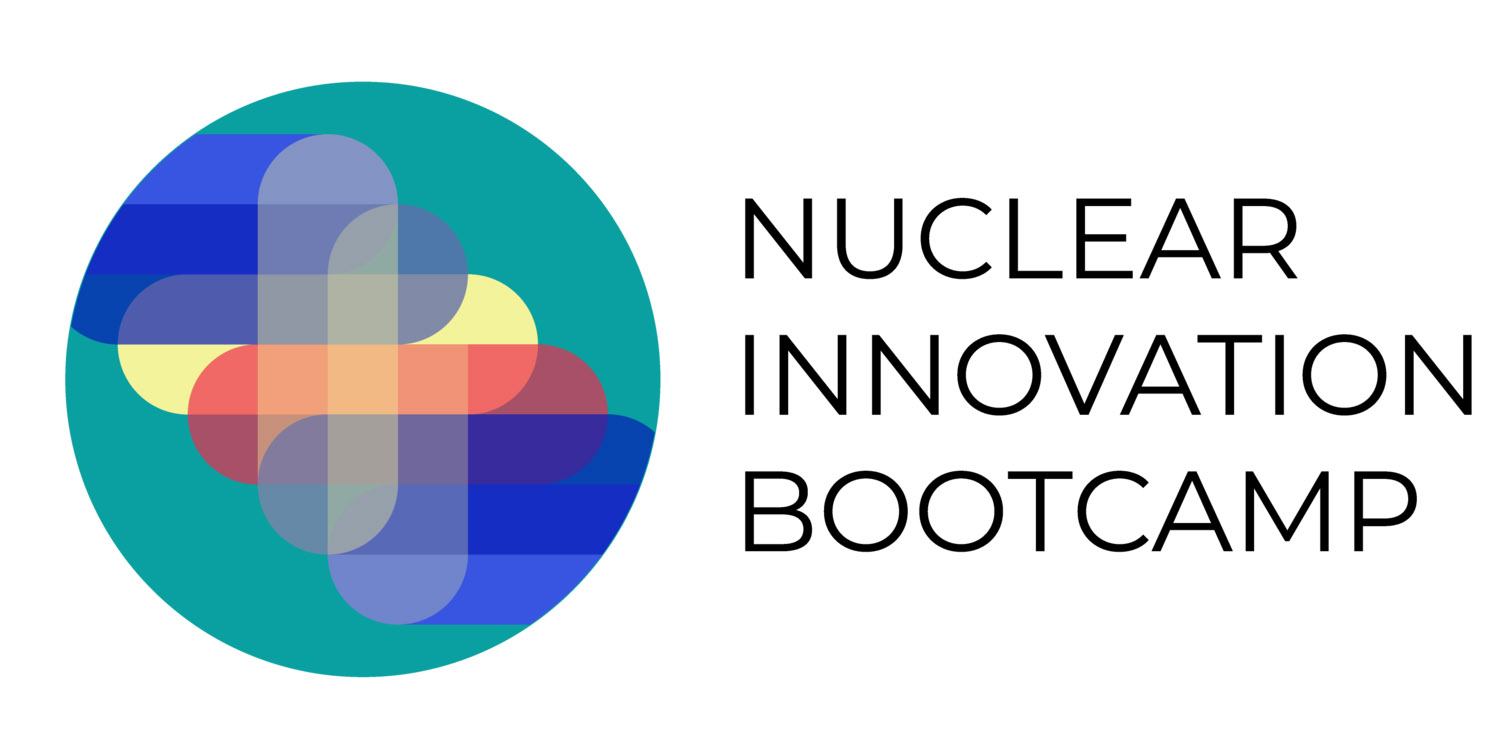
The Nuclear Innovation Bootcamp 2024 takes place this year from July 21 to August 2 at the University of Wyoming in Laramie.
Applications are due by February 25.
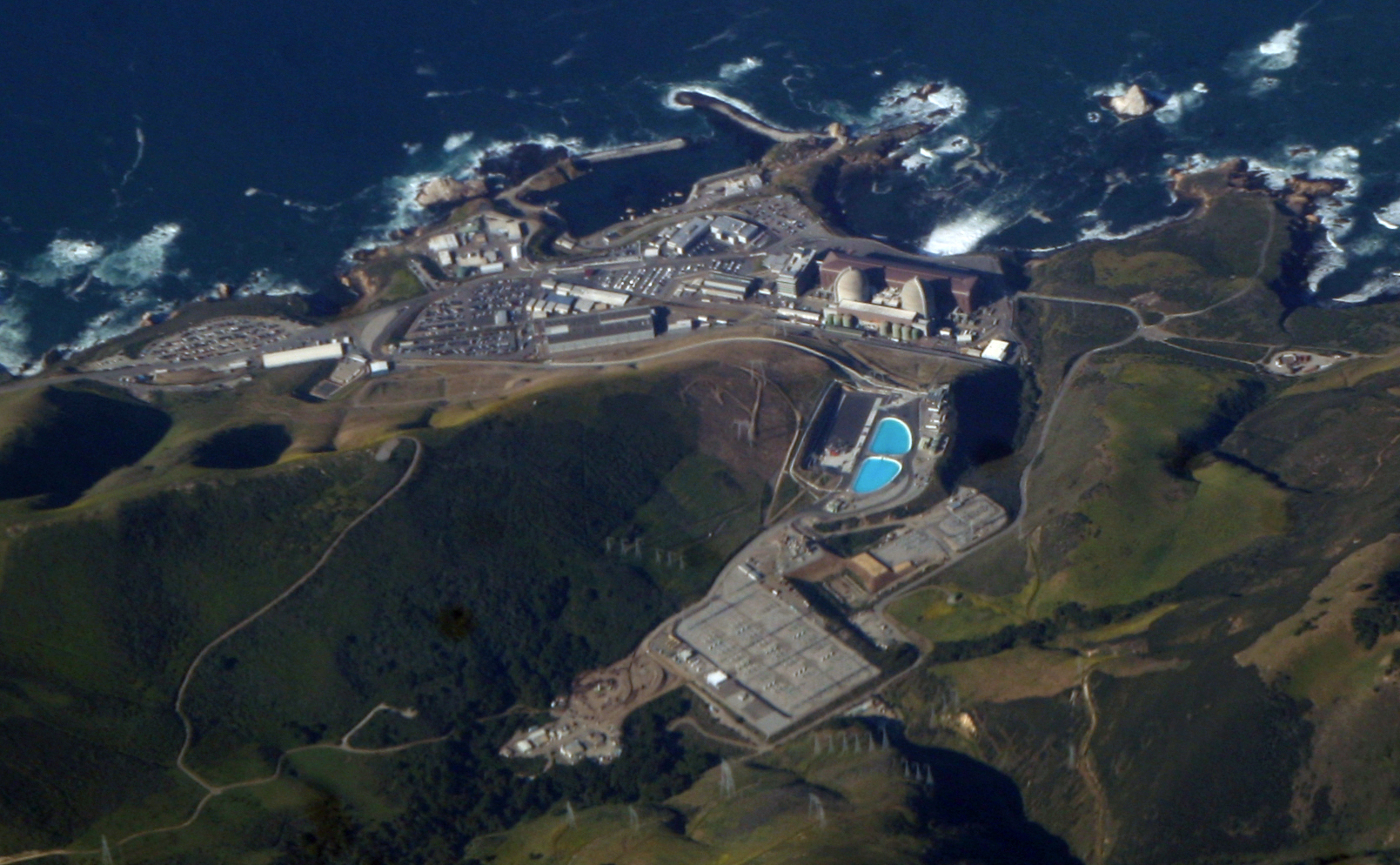
The Nuclear Regulatory Commission has scheduled two meetings in February to discuss the environmental evaluation and review process for the license renewal application of the two-unit Diablo Canyon nuclear power plant in Avila Beach, Calif.

WiscProf, an all-expense-paid engineering workshop at the University of Wisconsin–Madison for future faculty, will be held May 20–23, 2024.
Applications are due by March 1, 2024.
American Nuclear Society conferences always showcase the latest in nuclear, but one of the biggest attractions at this past November’s Winter Conference and Expo in Washington, D.C., was tech that is not new at all: cloud chambers. The Society is launching a new K-12 outreach effort featuring the ANS Visualizing Radiation Cloud Chamber Kit, and ANS staff were on hand to show it off.
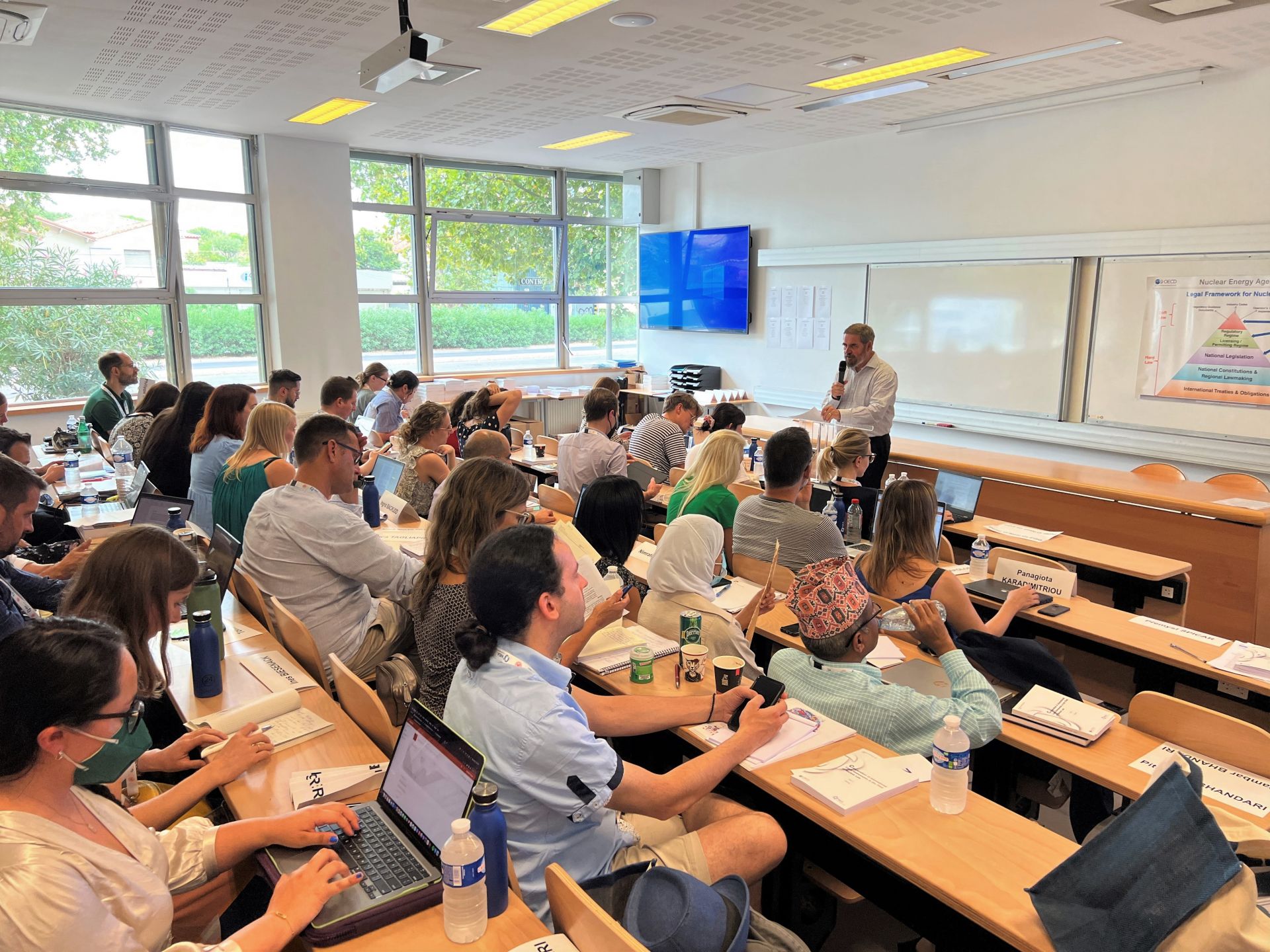
The application period for the 2024 session of the OECD Nuclear Energy Agency’s International School of Nuclear Law (ISNL) is now open. The school will run from August 26 through September 6 in Montpellier, France.